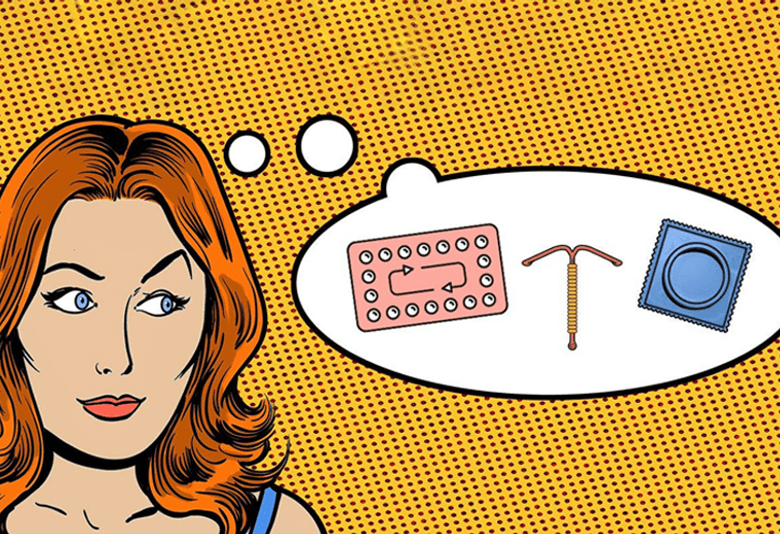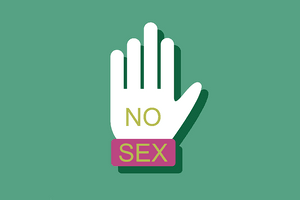By Nayonika.
India is a booming nation when it comes to population. Yet, contraception here is considered to be a method to control rather than plan births.
Let’s take a look at contraception in India. Since the 2000’s, people have had more choices regarding contraceptive methods. However, how many people can actually exercise these choices? According to the World Health Organization (WHO), there are four criteria to measure whether individuals are able to fulfil their right to health: Accessibility, Availability, Acceptability and Quality (AAAQ) of healthcare services and facilities.
Although female sterilization was the go-to option in the past, women can now ideally opt for reversible and less medically invasive options such as emergency pills, IUD’s, hormonal pills and female condoms. Yet, female sterilization remains the most common contraception method among Indian women even today. Female condom usage is negligible because it is more expensive and rather unavailable. Being affordable and readily available, male condoms are, on the other hand, the most widely used option among Indian men, while male sterilization or vasectomy rates are negligible. Why does this contrast exist?
We access most contraceptives that require medical supervision or intervention through healthcare providers, ranging from hospitals to nurses to clinical social workers. But accessibility depends greatly on acceptability. What comes under accessibility? Something is accessible when it can be afforded and is in proximity. But accessibility is also dependent on how the providers behave with their customers. While most essential goods do not draw any kind of judgement or humiliation, when it comes to contraceptives the responses vary depending on gender and marital status, because contraception is still not seen as an essential good despite it being part of sexual and reproductive rights.
Sex before marriage?
Most healthcare workers often refuse to provide contraceptives to unmarried people, especially adolescents. In India, the age of consent is 18 years, which means that it is considered that people who are younger than this age cannot consent to have sex and, therefore, should not be asking about safe sex. Contraception in India, as in many other parts of the world, is considered to reduce childbirth and not seen as a method to have safe sex or family planning.
As sex is often associated with marriage, the idea that the huge population of India that is unmarried can indulge in this act receives a cold shoulder. Where there is no recognition, how could there be action?
Morality of sex
The morality attached to the term ‘sex’ is moreover the reason that people do not even choose to talk about it in public. Birth givers are often questioned, judged or mocked if the provider thinks they are unmarried. Someone’s marital status becomes the defining factor when it comes to accessing contraceptives. If married, healthcare providers will often suggest going ahead and having children while their bodies are still ‘ripe’ and ‘fertile’ and can give birth. If they are not married, having sex goes out of the question.
Marital status only becomes relevant in the case of sterilization and medical interventions because it affects family planning. In other words, women and other birth givers are discouraged to access contraceptives because their sexual activity outside marriage is not seen as acceptable by healthcare providers.
The morality of having sex often also restricts people’s accessibility to the emergency contraceptive pill. Emergency contraceptive pills are very different from regular contraceptives. Where regular contraceptives are used to plan births or indulge in safe sex, emergency contraceptive pills or “the morning-after pills” as they are famously known, are used to avoid unwanted pregnancies.
There have been many documented instances in India in which people were denied the access to emergency contraceptive pills by the local pharmacies. Often judging and ridiculing the unmarried for indulging in sex, pharmacies have also taken upon them to moral-police the actions of young people, asking for prescriptions for an over-the-counter pill or even suggesting them not to indulge in sexual activities.
On the other hand many people choose to use emergency contraceptive pills as their regular contraception method because they are either denied access to contraceptives by their doctors, or they are too ashamed to even ask for them.
To conclude this, the acceptability and accessibility of contraception comes from various means –the highest being the moral ground of having sex. We are living in denial if we relate marriage directly with child rearing, and child rearing to having a healthy and happy marriage. We would think that our healthcare providers know better. But we live in a society where giving birth to a child is considered to be the ultimate goal in life. To break away from it, we will require to start discussions around it and raise a sensitised and aware generation.
Do you have something to share? Leave your comments below, contact us on our social media platforms: Facebook, Instagram, Twitter, YouTube and TikTok, send us an email to info@findmymethod.org. For more information on contraception, visit findmymethod.org
About the author: Nayonika is an outspoken young woman currently working in the social enterprise. With a passion for social justice, gender equality and empowering the girl child, Nayonika collaborates with various organisations to expand her vision. She is an avid reader, a connoisseur of art and accomplished classical dancer. A feminist researcher at heart, she has made it her life’s mission to uncover the stories of the marginalised at the grassroots level.

